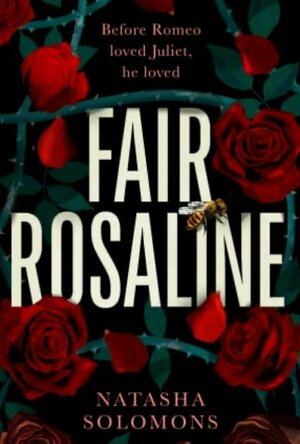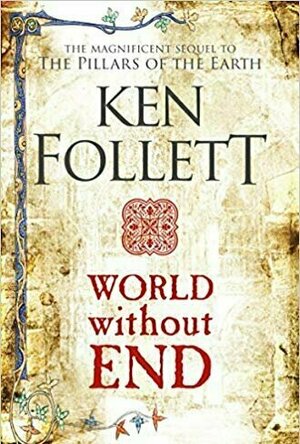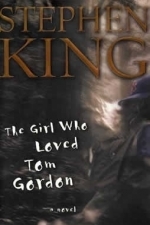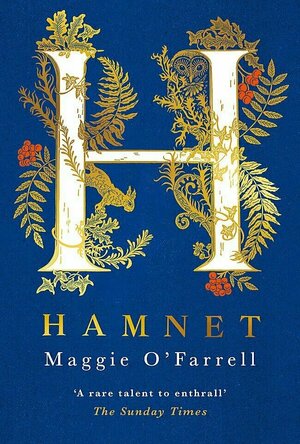ClareR (6096 KP) rated Fair Rosaline in Books
Aug 26, 2023
At the start of Romeo and Juliet, Romeo and his friends are seen laughing and joking about Rosaline who has been sent to a nunnery. Here, Rosaline gets a chance to tell her side of the story, and she isn’t the silly girl that the Montagues would have us believe. She’s passionate, intelligent, musical, literate, and she absolutely doesn’t want to spend her life in a convent. So she manages to extract 10 days of freedom from her grieving father (her mother has died in the recent plague) and she intends to live them to the max.
Her first, and probably most life-changing act, is to go to a big masked ball held at the Montagues home. There she meets a very charming Romeo. But he’s not like the young boy we meet in Shakespeare’s play. This Romeo is much older and knows exactly what he’s doing. This Romeo is a serial womaniser who likes his women to be girls.
I hated him quite early on, he’s so well written. Romeo is manipulative, charming and a thief of both material goods and young girls’ innocence.
The way this is all written is frankly gorgeous. The language is reminiscent of Shakespeare (except more accessible!) with a fair few phrases borrowed from his original prose.
I could’ve read this all day. Absolutely beautiful. And yes, highly recommended, even if you just want to see Romeo get his comeuppance.
Lyndsey Gollogly (2893 KP) rated A Feast of Souls (Araneae 2) in Books
Mar 6, 2024
Kindle
A Feast of Souls ( Araneae 2)
By Hailey Edwards
⭐️⭐️⭐️⭐️
Born with the ability to communicate with the dead, few things take Mana by surprise. But when a canis lopes into her life, announcing himself as the long-dead father of a childhood friend, she's shocked. To make matters worse, he has a dire message that she alone can deliver.
Now Mana must face Vaughn, the male who inspired one too many girlish fantasies, and impart the spirit's message--without acknowledging her source--so the soul can be laid to rest.
With rumors of a burgeoning clan war setting his nerves on edge, the last thing Vaughn needs is for an innocent to get caught in the crosshairs. But the woman he remembers as an awkward girl refuses to leave his side until he's heard her out. That's not the only change in her that calls to him. Her kindness soothes his battle-scarred soul--and he craves her in ways a warrior shouldn't.
When they are both captured, they learn of an even greater threat. The plague devastating the southlands has come to his clan home. And his best--and only--chance to keep his people alive is the female who walks among the dead.
I’m really starting to enjoy this series it’s getting better and better. This was very my favourite so far I love the unique clans and the story is so interesting. It shows the harshness as well as the good. There is so much packed into a short book.
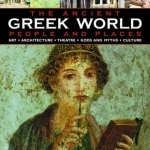
The Ancient Greek World - People and Places: How the Ancient Greeks Lived - An Authoritative and Highly Accessible Exploration of Society, Art and Architecture, Theatre, Sport and the Games
Book
Split into two parts, the book first traces the origin of the artistic achievements of Greece,...
Lyndsey Gollogly (2893 KP) rated World Without End in Books
Feb 4, 2020
Back to Kingsbridge., Following the lives of the children from pillars of the earth. I loved this book so much even more than the first! Ken Follett has a way of dragging you into this world and just making you believe it's now and you seeing it all unfold. Caris is inspirational watching her fight her way through to be exactly who he wants be and letting noone stand in her way despite what they try and do! Gwenda has fought for absolutely everything in her life, her man , her work her children. Ralph is just absolutely vile never have I read about a character I despise more! Well philmore comes bloody close. So many lives to follow and lose yourself in. Highly recommended these books are just brilliant!!
Kingsbridge survives the plague so what's next??
The cathedral is still the centre of it all
Lucky Lupin: A Memoir
Book
Lucky Lupin is a poignant yet light-hearted story of survival against the odds, based on Charlie...
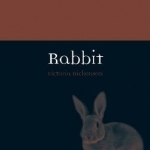
Rabbit
Book
Rabbit is the story of the winsome long-eared animal that hops through children's stories, myths and...
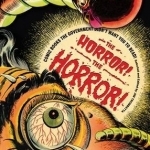
The Horror! The Horror!: Comic Books the Government Didn't Want You to Read!
Book
For the first time in over fifty years, author Jim Trombetta uncovers a rare visual treasury of some...
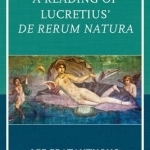
A Reading of Lucretius' De Rerum Natura
Book
Lucretius' philosophical epic De Rerum Natura (On the Nature of Things) is a lengthy didactic and...
Jesters_folly (230 KP) rated The Girl Who Loved Tom Gordon in Books
Dec 29, 2020
Set in Mane (Like a lot of Kings works.) 'The Girl Who Loved Tom Gordon' follows 9 year old Trisha McFarland as she gets lost in the wood whilst on a hike with her mother and brother. The story is more about coping with horror than an actual horror story as Trisha tries to find her way out of the woods whilst having to contend with the changing landscape, dead animals, hunger, thirst and exposure. Oh and there may or may not be something stalking her and that's the real extent of the horror, the 'not knowing' what's out there. There is no 'Dark man' or plague and no one has any shine, the story is just a little girl trying to find her way home. King mix's the real threats with those of Trisha's imagination , blurring the line so that, by the end the reader is not sure what really happened. Pushed to her limits Trisha is forced to dwell on the nature of god(s) and whether she should wait for a miracle or try to save her self .
Overall a good book that is slightly different to Kings other works and, at just over 200 pages (the copy I read) it's a refreshingly quick read
Hamnet is an imagining of what could have happened to Shakespeare’s son - even in the parish records it doesn’t say what his cause of death was. Maggie O’Farrell makes this version completely plausible though: plague should have been a real threat at this time. It killed indiscriminately: young and old, rich and poor, weak and strong. They were all vulnerable to illnesses with no cures. I’m something of an emotional reader at the best of times, but as Agnes, Hamnet’s mother, was preparing her son for burial, I was crying in to my breakfast. My 16 year old son looked at me over the top of his bacon butty and said:”Another sad bookthen, Mum?”, and shook his head. To read of a mother and her dead son, and see my 13 and 16 year old sons merrily tucking in to their bacon sandwiches, may not have been the ideal time to be reading this.
This is the kind of book that makes you really look at how precarious life was in those times, and how lucky we are today to have so few worries on this scale (Covid-19 aside!).
The writing is so beautiful, so descriptive and emotive: it picks you up and sets you down squarely in Elizabethan Stratford, making you feel exactly how Agnes must have felt. Honestly, it broke my heart to read of her pain.
If you haven’t read this yet, you’re in for a treat. This deserves ALL the awards.
